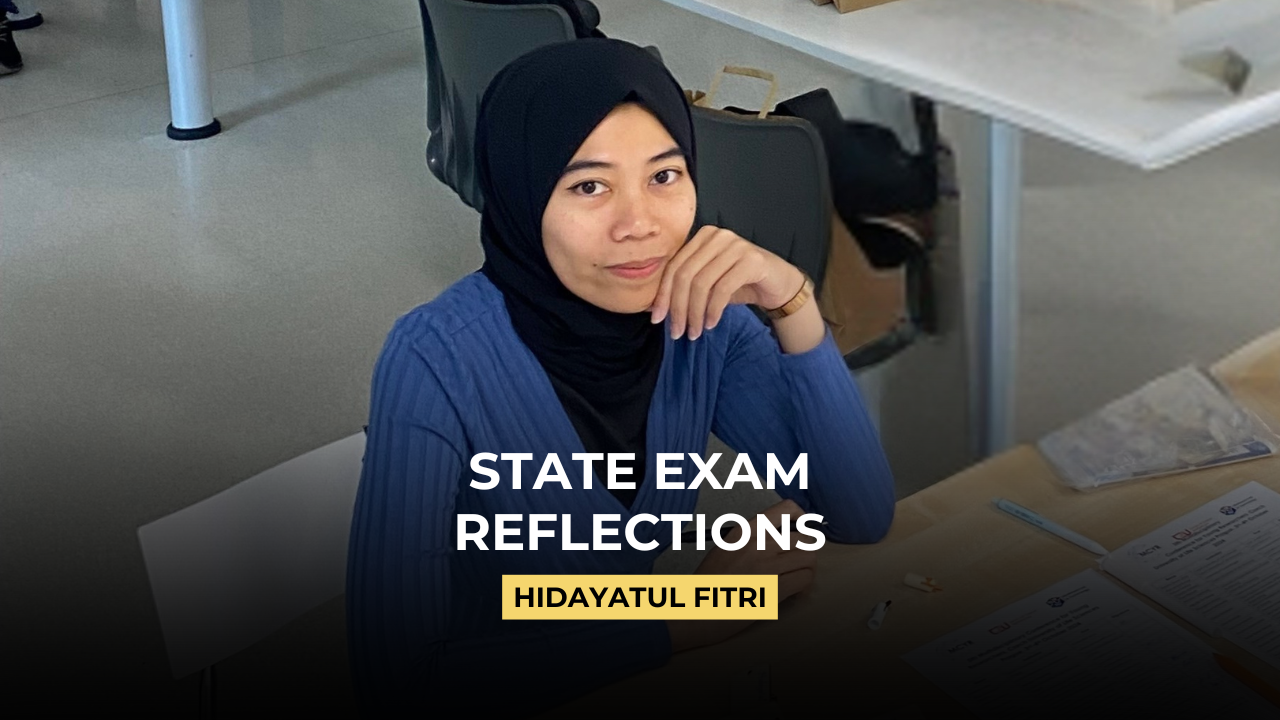My State Exam Experience – Hidayatul Fitri
The state exam is a key milestone in the PhD journey, testing both subject knowledge and the ability to synthesize and apply research concepts. In this blog series, BRT PhD students provide an inside look at the exam process — from preparation methods to the structure of the exam itself — offering insights into this essential academic requirement. Read PhD student Hidayatul Fitri’s first account below!
Honestly, the state exam was a mixture of feelings of relief and achievement. After less than a month of rigorous preparation and long study sessions, passing this exam felt like my hard work paid off. At the same time, it was quite satisfying to see all my efforts come together. I felt pleased but also realized this was another step of my study journey, there is still much more to do in my research.
My research focuses on making organic waste from different agricultural wastes more digestible in order to increase energy production in the biogas system. This is very related to the topics of my state exam such as renewable resources, organic waste management, and sustainable technology for waste management. Also, my research has strong connections to waste management, specifically in agricultural areas where organic waste is abundant and still unutilized. Furthermore, the broader question of renewable resources is how we can transform to greener energy while still addressing the disposal challenges and issues.
At the beginning, I was nervous. But as the exam went on, I discovered my rhythm and found myself more relaxed. The examiners asked a combination of questions such as theoretical and practical questions. Some focused on fundamental issues addressed in waste management and renewable resources while others were more relevant to my research. When the question was about my research, I felt more like it was a discussion as I know more about my research and have spent so much time and effort on it. However, there were times when I had to pause and think carefully before responding with better answers.
I imagined state exams would be strict and interrogation-like, but it was more like scientific conversations. Of course, it was difficult, but some parts seemed like in-depth discussions with professionals who wanted to understand my research and to encourage me to think more deeply. I was well prepared for the more technical questions about enzymatic pretreatment. I did not expect to get such simple questions about the selected samples, as it is quite important for the research. Overall, it was more like a discussion with input to be considered for future research.
One of the most effective study approaches was to study the essential ideas of each exam subject. Having a strong understanding of the fundamentals help to build a solid foundation and confidently address theoretical and practical questions. In addition, I also made sure to explore broader topics related to my research to build a greater understanding and anticipate interdisciplinary questions during the exam. When studying, try not only to memorize but more to understand. Understanding is more important than just memorizing, because when you forget it, you forget! So, when you are studying, try to write down or talk about it with yourself, that helps you to remember and understand it. Also, practice talking about your research with colleagues in a way that someone outside your field could understand. It is quite beneficial, they help you expose the area of your weakness that is required to be improved.
The state exam was a significant accomplishment, but it is not over yet. Of course, there is still a lot of work to do, but I feel better and more prepared for the next journey of my study. My next step will be improving the enzymatic pretreatment and investigating how different agricultural wastes react to this approach. I plan to analyze the enzyme efficacy into various agriculture wastes which substrate most affected by the pretreatment. So, my focus is on improving my experiment, evaluating the outcomes, and preparing for the next challenge in publishing my findings and demonstrating my work.
For more details on BRT activities, subscribe to our newsletter or follow us on social media for regular updates and highlights.


